Are you searching for medical and healthcare jobs in Malawi? Ntchito.com is your premier destination for the most current and active positions within Malawi’s dynamic healthcare sector. Whether you’re interested in roles within hospitals, clinics, research institutions, public health organizations, or specialized medical facilities in major cities like Lilongwe and Blantyre, our platform connects you with leading employers seeking skilled healthcare professionals. Advance your career by exploring diverse opportunities in nursing, medical research, clinical administration, public health, and more within Malawi’s thriving healthcare landscape. Additionally, enhance your expertise with Courses & Trainings (Funded) and gain practical experience through Internship Opportunities.

Clinical Officer (Orthopaedics)




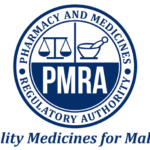
Medicines Inspection Officer

PV and Post-Market Surveillance Officer (4 Positions)

Medicines Information, Promotion & Advertising Officer

Registration and Licensing Manager
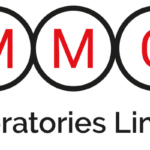

Interns

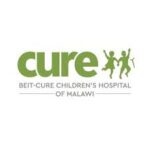
Ward and Theatre Nurses

School Feeding Manager

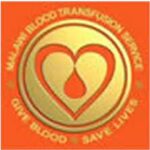
Laboratory Manager

Mental Health Clinical Officer

Mental Health Psychiatric Nurse

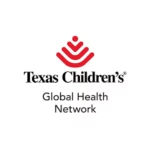
Global Health Corps Physician


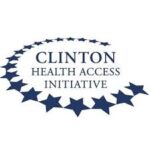


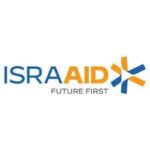
Health Project Manager

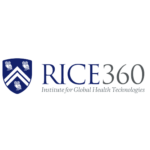
FAQs for Medical and Healthcare Jobs in Malawi
What educational qualifications are required for advanced medical and healthcare positions in Malawi?
Advanced medical and healthcare roles in Malawi typically require a strong educational foundation combined with relevant professional experience. Candidates should possess at least a bachelor’s degree in fields such as Medicine, Nursing, Public Health, Pharmacy, Medical Laboratory Science, or other related healthcare disciplines. For higher-level positions, such as specialized physicians, senior nurses, healthcare administrators, or research scientists, a master’s degree or doctoral degree may be necessary. Additionally, certifications from recognized professional bodies, such as the Malawi Medical Council or the Malawi Nurses Association, can significantly enhance a candidate’s qualifications and competitiveness in the job market. For those seeking further education, explore Bachelors Scholarship and Masters Scholarship opportunities to support your academic advancement.
Beyond formal education, practical experience is highly valued. Employers seek individuals with hands-on experience through internships, clinical rotations, or previous employment in healthcare settings. Participation in Internship Opportunities can significantly strengthen your application by providing real-world experience and networking opportunities within the medical and healthcare sectors.
How is the demand for medical and healthcare professionals evolving in Malawi’s healthcare system?
The demand for medical and healthcare professionals in Malawi is steadily increasing, driven by the expansion of healthcare infrastructure, ongoing public health initiatives, and the growing population’s healthcare needs. As Malawi invests in building and upgrading hospitals, clinics, and specialized medical facilities, the need for skilled healthcare workers such as doctors, nurses, pharmacists, and medical technologists grows correspondingly. This trend is further fueled by public health campaigns aimed at combating diseases, improving maternal and child health, and enhancing healthcare accessibility across both urban and rural areas.
In addition to traditional healthcare roles, there is a growing demand for professionals in emerging fields such as telemedicine, healthcare informatics, and specialized medical research. The integration of technology into healthcare delivery is creating new opportunities for those with expertise in digital health solutions, data management, and medical research methodologies. Staying informed about these industry trends through resources like Job in Malawi and Energy Sector Jobs in Malawi can help candidates identify emerging opportunities and align their skills with market demands.
What key skills and competencies are essential for success in medical and healthcare roles in Malawi?
Success in medical and healthcare roles in Malawi requires a combination of technical expertise and soft skills. Key technical skills include clinical proficiency, medical knowledge, proficiency in using healthcare technologies and equipment, and a strong understanding of medical protocols and procedures. For specialized roles, expertise in areas such as surgical techniques, diagnostic imaging, laboratory testing, or pharmaceutical management is essential. Additionally, familiarity with healthcare information systems, electronic medical records (EMR), and data analysis tools is increasingly important as the sector embraces digital transformation.
On the soft skills front, employers value excellent communication and interpersonal abilities, as healthcare professionals often interact with patients, families, and multidisciplinary teams. Critical thinking and problem-solving skills are crucial for diagnosing conditions, developing treatment plans, and managing complex healthcare scenarios. Compassion, empathy, and cultural sensitivity are also important for providing patient-centered care. Effective time management and organizational skills are essential for handling multiple patients and tasks efficiently. Enhancing these skills through Courses & Trainings (Funded) and Soft Skills Training can make candidates more attractive to potential employers and facilitate career advancement.
How can medical and healthcare professionals in Malawi advance their careers and stay competitive in the job market?
Career advancement for medical and healthcare professionals in Malawi involves a strategic combination of education, skill development, and networking. Pursuing advanced degrees or specialized certifications can open doors to higher-level positions and specialized roles within the healthcare sector. Engaging in continuous learning through Training Opportunities helps professionals stay updated with the latest medical advancements, healthcare technologies, and best practices in patient care.
Networking is another critical component for career growth. Building connections with industry peers, attending medical conferences, and participating in professional associations can provide valuable insights and job leads. Additionally, gaining experience in diverse roles within healthcare settings, such as working in different departments, participating in research projects, or taking on leadership roles, can enhance a professional’s versatility and marketability. Utilizing resources like Consultancy Projects and Internship Opportunities can also provide practical experience and facilitate transitions into more advanced roles.
What are the common challenges faced by medical and healthcare professionals in Malawi, and how can they overcome them?
Medical and healthcare professionals in Malawi often encounter challenges such as limited resources, infrastructure constraints, and the burden of infectious diseases. Limited access to advanced medical equipment, insufficient funding for healthcare facilities, and shortages of essential medications can impact the quality of patient care and increase the workload for healthcare workers. Additionally, infrastructure constraints, including inadequate transportation and communication systems, can hinder the delivery of timely and effective healthcare services, especially in rural areas.
To overcome these challenges, healthcare professionals can seek out continuous education and training to stay informed about the latest medical practices and innovations. Engaging in Courses & Trainings (Funded) can enhance knowledge and skills, enabling professionals to implement efficient and effective healthcare solutions despite resource limitations. Building a strong professional network through Networking Strategies for Job Seekers can provide support, resources, and collaborative opportunities to address systemic challenges. Additionally, advocating for better funding and support from government and private sectors can contribute to improving healthcare infrastructure and resources in Malawi. Leveraging technology and innovative healthcare delivery models, such as telemedicine and mobile clinics, can also help mitigate infrastructure constraints and expand access to quality care.